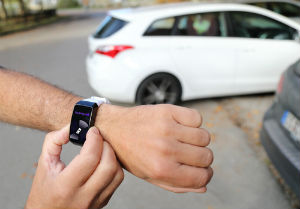- ATV accidents
- Brain Injuries
- Bus Accident
- Car Accidents
- Construction Accident
- Distracted Driving
- Drugged Driving Accident
- DUI
- Firm News
- Mass Tort
- Medical Malpractice
- Motorcycle Accidents
- Pedestrian Accidents
- Personal Injury
- Product Liability
- Safety
- Social Security Disability
- Truck Accidents
- Vehicle Accidents
- Workers Compensation
- Workplace Injuries

Self-driving vehicles are likely the wave of the future. Do not be surprised if you hear a lot more discussion about robot driven cars – known as autonomous vehicles – in the next decade.
The National Highway Traffic Safety Administration (NHTSA) recently released a letter confirming that it agrees with Google’s interpretation that the artificial intelligence that is used to operate the company’s self-driving vehicles can legally be considered a driver.
According to an article in The New York Times, President Obama recently pledged to expedite regulatory guidelines for self-driving cars, and to invest federal dollars in more research. A number of significant questions remain to be resolved, including the question of liability: in the event of an accident involving a self-driving car, what entity will be liable? Can you sue the robot driver? If a person sustains injuries, will the manufacturer of the robot be accountable?
Manufacturer Liability for Accidents Caused by Self-Driving Cars
At this point, liability for an accident caused by a self-driving vehicle may be placed on the shoulders of the car’s manufacturer based on the fact that all of the systems in the car – which failed, causing the accident – are the manufacturer’s products.
In fact, Google has argued that tickets in an accident caused by its self-driving cars should not be given to humans, but to the company itself (see: Google’s Self-Driving Cars Have Never Gotten a Ticket, published in The Atlantic).
Assigning Liability to a Robot
Based on the above, liability for a self-driving car would lay in a non-human entity: a corporation. But what if liability was assigned to another non-human entity – a robot? That’s exactly what the future may hold, Frank Weaver, author of the book Robots Are People, Too, told reporters at The Atlantic.
Weaver argues that if robots were made to be separate legal entities, that were assigned their own insurance, liability may be more cut and dry in situations involving self-driving vehicles. In other words, explains the article, damages in an accident would fall on the legal entity of the vehicle/robot, not the manufacturer nor the human who owns the car.
Whether liability will be assigned to the robot drivers remains unknown. The idea of making robots financially responsible no doubt has its flaws. Since self-driving cars are not yet being mass produced, other theories of liability may emerge in the meantime.
If You Are In an Accident Where Liability Is Unclear, Contact an Attorney
When liability is not clear in an accident in Kentucky, the best thing that you can do is to contact an experienced Kentucky car accident attorney to evaluate the contributing factors. An attorney can work with you to get to the bottom of why an accident occurred, who should be held liable, and how to file a claim against the at-fault driver or multiple parties.
If another driver (or a robot!) hits you and causes you injuries, you should seek legal counsel. A free consultation with the attorneys at the Frank Jenkins Law Offices can clear up any questions that you may have about what damages you can seek, and how to improve your chances of a better future.
To schedule your free case review today, contact us directly using our online form or calling our offices now.


